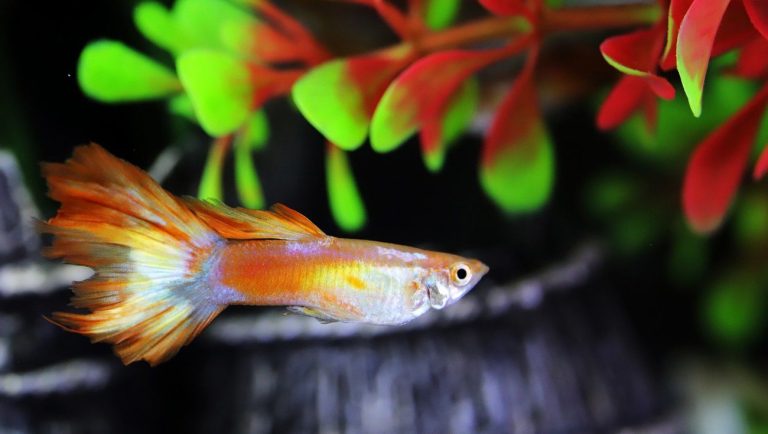Debunking Common Myths: Is Keeping Fish Really That Easy?
For aspiring fish keepers, the underwater world can seem alluring. However, the reality often differs from the romanticized image. Many beginners fall prey to common misconceptions, leading to unforeseen challenges and, sadly, the untimely demise of their finned friends. This comprehensive guide will debunk ten prevalent myths surrounding fishkeeping, empowering you to become a successful and responsible aquarist.
Myth 1: Fish Keeping is Simple; It Just Needs Water and Food
Contrary to popular belief, fishkeeping is far from simplistic. While water and food are essential, successful fishkeeping requires a deeper understanding of water chemistry, biological filtration, appropriate tank setups, and the specific needs of your chosen species. It’s a delicate ecosystem that needs careful management. Thinking it’s merely about providing water and food drastically underestimates the commitment involved. A successful aquarist demonstrates dedication and a willingness to learn.
Myth 2: Guppies Are Easy – A Beginner’s Dream?
Often touted as ideal for beginners, guppies still demand attention. While relatively hardy, neglecting water quality or failing to address other environmental issues can lead to significant mortality. Don’t be fooled by the reputation; even guppies require diligent care and understanding of their needs. Thorough research is crucial before bringing any fish home.
Myth 3: Bigger is Always Better When It Comes to Fish Tanks
Larger tanks aren’t always practical or beneficial, especially for apartment dwellers. While a larger tank offers more space, it also requires more maintenance, more substantial filtration systems, and more water changes. A realistically sized tank, properly maintained, is far superior to a larger tank neglected due to the burden of upkeep. Prioritize a tank you can realistically manage.
Myth 4: Water Changes: A Myriad of Methods
There’s no one-size-fits-all approach to water changes. The frequency and volume depend on various factors, including tank size, bioload (the number of fish and their waste production), and filtration efficiency. Regular water changes are crucial, but their frequency should be adjusted based on the specific needs of your aquarium, not a rigid schedule. If you’re constantly changing water to prevent fish deaths, there’s likely a larger underlying issue.
Myth 5: Round Aquariums are Aesthetically Pleasing, But Functionally Flawed
While visually appealing, round tanks present practical challenges. They limit the placement of essential equipment like filters and heaters, hindering efficient water circulation and temperature control. Furthermore, the curved glass can distort the fish’s vision over time. Opt for rectangular tanks for optimal fish health and ease of maintenance.
Myth 6: More Fish Means a More Vibrant Aquarium – The Density Deception
Overstocking an aquarium leads to competition for resources, increased waste accumulation, and ultimately, a decrease in water quality. This can cause stress, disease, and death among your fish. Prioritize the well-being of your fish over creating a visually crowded tank. Research the appropriate stocking levels for your chosen species and tank size.
Myth 7: Installing Taps Directly on the Aquarium – A Recipe for Disaster
Connecting taps directly to the aquarium is highly discouraged. Untreated tap water contains chemicals like chlorine and chloramine that are harmful to fish. Always use a dechlorinator and ensure the temperature of the added water closely matches the tank’s temperature to avoid shocking your fish.
Myth 8: Over-Decorating: A Beautiful but Dangerous Aquarium
While decorations enhance the aesthetic appeal, excessive items can create hiding places for waste, impede water flow, and potentially injure your fish. Choose decorations carefully, prioritizing those that won’t damage or stress your fish. Avoid sharp edges and overcrowded layouts.
Myth 9: Ignoring Fish Compatibility: A Recipe for Conflict
Choosing fish based solely on appearance without considering their compatibility is a common mistake. Different species have varying needs and temperaments; ignoring these factors can result in aggression, stress, and mortality. Thorough research into each species’ behavior and compatibility before purchasing is essential.
Myth 10: Panicking When Fish Fall Ill: The Dangers of Reckless Medication
When a fish falls ill, avoid panicking and immediately treating the entire tank. This can disrupt the delicate balance of the aquarium’s ecosystem and potentially harm healthy fish. Isolate the affected fish, identify the cause of the illness, and consult a professional for appropriate treatment before administering any medication.
Successfully keeping fish requires diligence, research, and a commitment to understanding the needs of your aquatic companions. By debunking these common myths and prioritizing the well-being of your fish, you’ll create a thriving and visually stunning underwater world. Remember, responsible fishkeeping is rewarding and fulfilling, but it requires consistent effort and learning.

